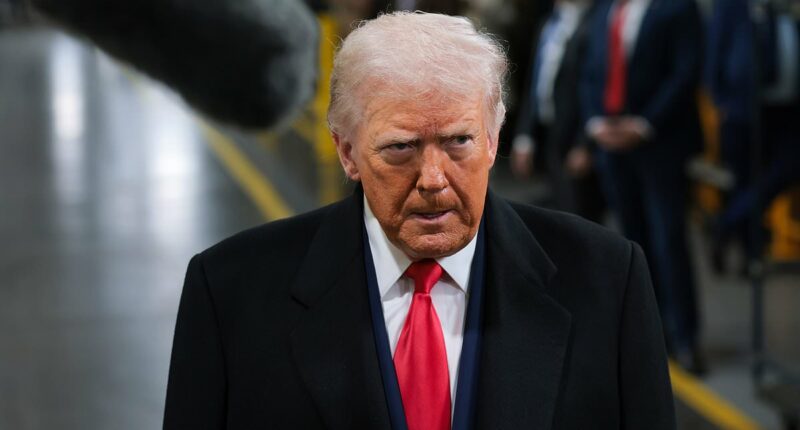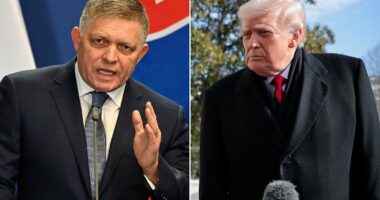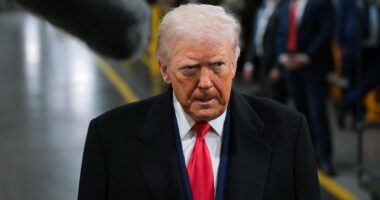Share this @internewscast.com

The Trump administration’s top officials have reportedly held multiple undisclosed meetings with leaders of a Canadian separatist movement aiming to transform an oil-rich region into an independent state. These clandestine discussions, which began last spring, arise amidst a deteriorating rapport between President Donald Trump and Canadian Prime Minister Mark Carney. Carney’s recent initiative to strengthen Canada’s trade ties with China has raised concerns in Washington.
Canada and China Strike Deal to Lower Trade Barriers

In a recent agreement, Beijing and Ottawa decided to reduce tariffs on Canadian canola oil and permit the sale of some Chinese-manufactured electric vehicles in Canada at significantly lower tax rates. Jeff Rath, who leads the Alberta Prosperity Project—a group advocating for the independence of the western province—asserts that his ties with the Trump administration are far stronger than those of Carney, as reported by the Financial Times. Sources revealed that key figures from the Alberta Prosperity Project have met with officials from the State Department in Washington on at least three occasions since April 2025.
US Officials Move Quickly to Temper Expectations

Rath, who attended the discussions, stated, “The US shows great enthusiasm for a free and independent Alberta.” However, US officials have been quick to minimize the significance of these meetings, emphasizing that no promises have been made to the group. A State Department spokesperson clarified, “The department frequently engages with civil society groups. As is common in such routine meetings, no commitments were extended.” Echoing this sentiment, a White House representative confirmed that no agreements have been reached, stating, “Administration officials routinely meet with various civil society groups. No support or commitments have been communicated.”

The Alberta Prosperity Project is reportedly seeking a meeting as soon as next month with US Treasury Department officials. They plan on asking for $500 billion in credit to help fund the province if a yet to be called referendum results in the province’s independence. The group needs 177,000 signatures to bring an independence petition to the legislature by May. It has not said how many it has attained thus far. Coming at a tense moment between Trump and Carney, the president has made known is unease with Ottawa and Beijing deepening ties.

‘If Governor Carney thinks he is going to make Canada a drop off port for China to send goods and products into the United States he is sorely mistaken,’ Trump wrote on Truth Social on Saturday. ‘If Canada makes a deal with China, it will immediately be hit with a 100 percent tariffs against all Canadian goods and products,’ the president threatened. Carney was quick to clarify on Sunday that any deal with China would have to go through proper channels under its trade deal with the US and Mexico, called USMCA.

Part of that deal restricts which non-market economies can sign deals with the North American countries. Any deal that Canada wishes to strike must first be notified to the US and Mexico. ‘We have no intention of doing that with China or any other non-market economy,’ Carney said Sunday.











